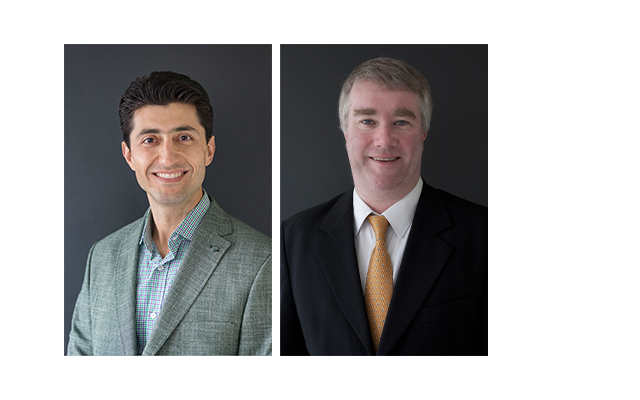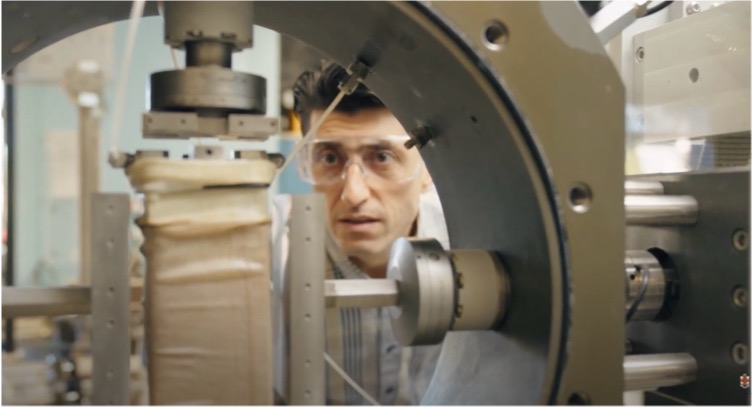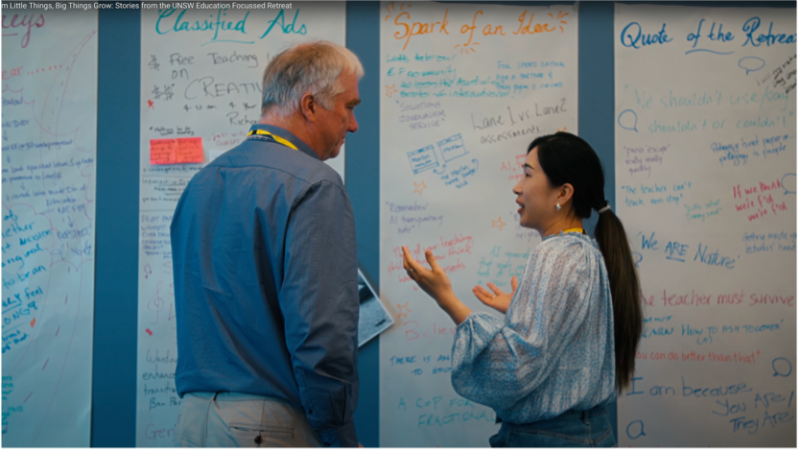Congratulations to CIES Associate Professors Arman Khoshghalb and Steven Davis
Announcing the news of their promotion in October 2024, Head of School Scientia Professor Nasser Khalili congratulated Arman and Steve on their achievement. The promotion recognises, he said, ‘their exceptional contribution to research, education, leadership and engagement.’

 A/Prof Arman Khoshghalb obtained his PhD in geotechnical engineering at UNSW Civil & Environmental Engineering in 2011 and shortly after, was appointed to the position of Lecturer at UNSW Australia. In 2016, he was promoted to Senior Lecturer.
A/Prof Arman Khoshghalb obtained his PhD in geotechnical engineering at UNSW Civil & Environmental Engineering in 2011 and shortly after, was appointed to the position of Lecturer at UNSW Australia. In 2016, he was promoted to Senior Lecturer.
His research interests include mechanics of unsaturated soils, soil water retention behaviour, geothermal energy and energy geo-structures, advanced numerical methods and constitutive modelling in Geomechanics, and coupled analysis of porous media.
Arman has developed a Meshfree based computer program (in FORTRAN) for the coupled analysis of flow and deformation in unsaturated soils including large deformations and hydraulic hysteresis. The formulation and the program he has developed can be used for modelling existing geotechnical structures like earth dams and natural/manmade slopes.
His other research concerns dynamics and micro-mechanics of unsaturated soils, and characterisation of soil water retention curve (SWRC) in deformable soils. He has also developed a novel finite difference time discretisation scheme for numerical solution of partial differential equations.
His innovative research work means Arman is an integral part of the next generation of Numerical Modelling, one of a select group of international academics working on a cluster of new approaches to understanding and preventing the recurring geotechnical problems of failure and instability.
Currently, the most widely used method for numerical modelling of geo-structures is the Finite Element Method (FEM). To approximate the unknown, FEM divides the domain into smaller elements and, through the meshing of the domain, formulates simpler equations for these elements, assembling them into a larger system that models the whole domain.
“FEM is accurate and efficient most of the time,” Arman says, “but it is not well suited to solve some problems, for example, those including large deformations or cracks. I am working on a particular group of Meshfree methods called the Smooth Point Interpolation Methods (SPIMs). SPIMs adjust strain definition in each of the domain elements to yield a more accurate and flexible numerical model.”
Arman is a member of the Editorial Board of Computers and Geotechnics, and also a member of the Technical Committee 103 (Numerical Methods in Geomechanics) and 106 (Unsaturated Soils) within the ISSMGE. He is a Chief Investigator at RIIS - an industry and ARC funded research and innovation hub for smart infrastructure.
 A/Prof Steven (Steve) Davis, who gained his PhD from UNSW Engineering in 2003, has been Chair of the School’s Teaching and Learning Committee (TLC) since 2013. The TLC team constantly investigates teaching practices, seeking innovation and stimulating discussion between colleagues, and provides a meaningful interface between students and academics.
A/Prof Steven (Steve) Davis, who gained his PhD from UNSW Engineering in 2003, has been Chair of the School’s Teaching and Learning Committee (TLC) since 2013. The TLC team constantly investigates teaching practices, seeking innovation and stimulating discussion between colleagues, and provides a meaningful interface between students and academics.
Winner of the Vice Chancellor's Award for Teaching Excellence in 2014, Steve is an Education-Focussed academic, a category introduced at UNSW in 2017 for passionate and innovative educators, and is a keen builder of the EF community in the School and across campus. “We care about excellence in education,” Steve says. “We want to do a really exciting job for our students.” As Chair of the TLC, he says he feels “privileged to see the amazing things that different members of staff in the School are doing in their teaching.”
Steve’s own teaching is complemented by his research interests in Stochastic Systems, Evolutionary Programming, Parallel Computing Applications to Civil Engineering and Online Assessment. He translates his expertise in the use of Virtual Reality in construction visualisation directly to the classroom guiding students in the art of graphic modelling to solve some of engineering’s most complex problems and providing them with an invaluable foundation in comprehensive model building skills.
Developing his own online software, Steve has been able to enhance student learning, exposing the classroom to real world problems in today’s construction industry and challenging commonplace practice, assumptions and beliefs in order to identify and address deficiencies in industry modelling standards. His thorough and organic approach also focuses on variables and probabilities as it seeks to make construction processes safer, more efficient and more structurally sound.
His experience in distance and online learning came in handy when due to the COVID-19 outbreak, universities around the world had to make a sudden shift towards online teaching on a mass scale, using digital technologies such as light boards, online polling and other interactive tools. Yet, for Steve, teaching and learning is still all about communication and engagement.
“I’m a great believer in the importance of the social dimension of teaching and learning.” Steve says. “Students learn better just by being together in a classroom. It is being with one another and seeing the focus of the other students that reinforces the importance of what they are doing. It makes it easier for them to engage and learn.”
At the 2023 UNSW Education Focussed Academics Retreat, Steve was one of two academics followed throughout the retreat to discuss their teaching journey and experiences. Check it out!



